
Ernest Dale Tubb, nicknamed the Texas Troubadour, was an American singer and songwriter and one of the pioneers of country music. His biggest career hit song, "Walking the Floor Over You" (1941), marked the rise of the honky tonk style of music.
Country USA was a 23-volume series issued by Time-Life Music during the late 1980s and early 1990s, spotlighting country music of the 1950s through early 1970s.
Floyd Tillman was an American country musician who, in the 1930s and 1940s, helped create the Western swing and honky tonk genres. Tillman was inducted into the Nashville Songwriters Hall of Fame in 1970 and the Country Music Hall of Fame in 1984.
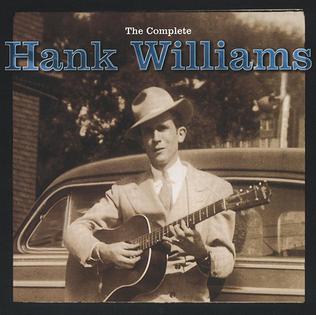
The Complete Hank Williams is a 1998 box set collecting almost all of the recorded works of country music legend Hank Williams, from his first recorded track in 1947 to the last session prior to his untimely death in 1953 at the age of 29. While a number of live and overdubbed songs are excluded, the ten disc collection contains 225 tracks, including studio sessions, live performances and demos. Among those 225 songs are 33 hit singles and 53 previously unreleased tracks.
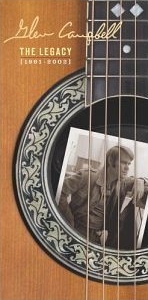
The Legacy (1961–2002) is a boxset covering four decades of recordings by Glen Campbell. The fourth CD is a compilation of live recordings.
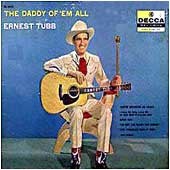
The Daddy of 'Em All is an album by American country singer Ernest Tubb, released in 1957.
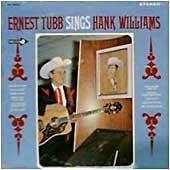
Ernest Tubb Sings Hank Williams is an album by American country singer Ernest Tubb, released in 1968. It is a tribute to the songs of country singer-songwriter Hank Williams.

Ernest Tubb Record Shop is an album by American country singer Ernest Tubb, released in 1960. It is named after Tubb's record shop in Nashville.
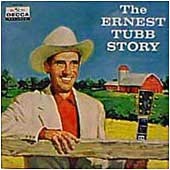
The Ernest Tubb Story is an album by American country singer Ernest Tubb, released in 1959. It was originally released as a double-LP album.

Ernest Tubb and His Texas Troubadours is an album by American country singer Ernest Tubb, released in 1960.

All Time Hits is an album by American country singer Ernest Tubb and His Texas Troubadours, recorded and released in 1960. Despite the album title, it is not a compilation of Tubb's previous hits. The entire album consists of Tubb's covers of songs that had been hits for other country and honky-tonk singers.
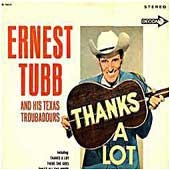
Thanks a Lot is an album by American country singer Ernest Tubb, released in 1964.

My Pick of the Hits is an album by American country singer Ernest Tubb, released in 1965. It reached number 15 on the Billboard Country Albums chart.
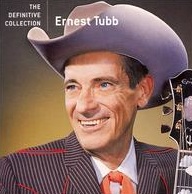
The Definitive Collection is a compilation album by American country singer Ernest Tubb, released in 2006. The album includes duets with Red Foley and Loretta Lynn.

Yellow Rose of Texas is a box set of Ernest Tubb recordings from 1954 to 1960, released in 1993. It is a 5-CD box set and contains 150 songs. The set includes extensive liner notes, session notes and photographs.
"Take These Chains from My Heart" is a song by Hank Williams. It was written by Fred Rose and Hy Heath and was recorded at Williams' final recording session on September 23, 1952, in Nashville. The song has been widely praised; Williams' biographer Colin Escott deems it "perhaps the best song [Rose] ever presented to Hank...It was one of the very few songs that sounded somewhat similar to a Hank Williams song." Williams is backed by Tommy Jackson (fiddle), Don Helms, Chet Atkins, Jack Shook, and Floyd "Lightnin'" Chance (bass). In the wake of Williams' death on New Year's Day, 1953, the song shot to No. 1, his final chart-topping hit for MGM Records. Like "Your Cheatin' Heart," the song's theme of despair, so vividly articulated by Williams' typically impassioned singing, reinforced the image of Hank as a tortured, mythic figure.
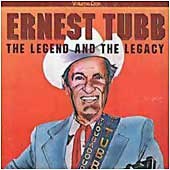
The Legend and the Legacy is a compilation album by American country singer Ernest Tubb, released in 1979. The initial release was issued on LP as The Legend and the Legacy Volume 1. It was released on First Generation Records, but due to legal issues, was withdrawn and released on Cachet Records.

"I'm a Long Gone Daddy" is a country song written and recorded by Hank Williams. It was released in 1948 on MGM Records and became his second top ten hit.
"I Could Never Be Ashamed of You" is a song written and recorded by Hank Williams. It was released as the B-side of "I'll Never Get Out of This World Alive" on MGM Records in November 1952.
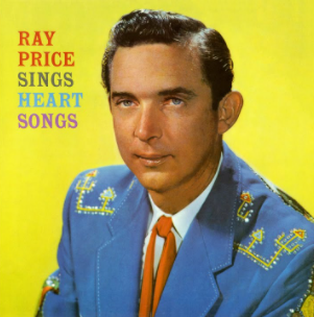
Ray Price Sings Heart Songs is a studio album by country music artist Ray Price. It was released in 1957 by Columbia Records. AllMusic gave the album four-and-a-half stars. In Billboard magazine's annual poll of country and western disc jockeys, it was ranked No. 1 among the "Favorite C&W Albums" of 1957.
















